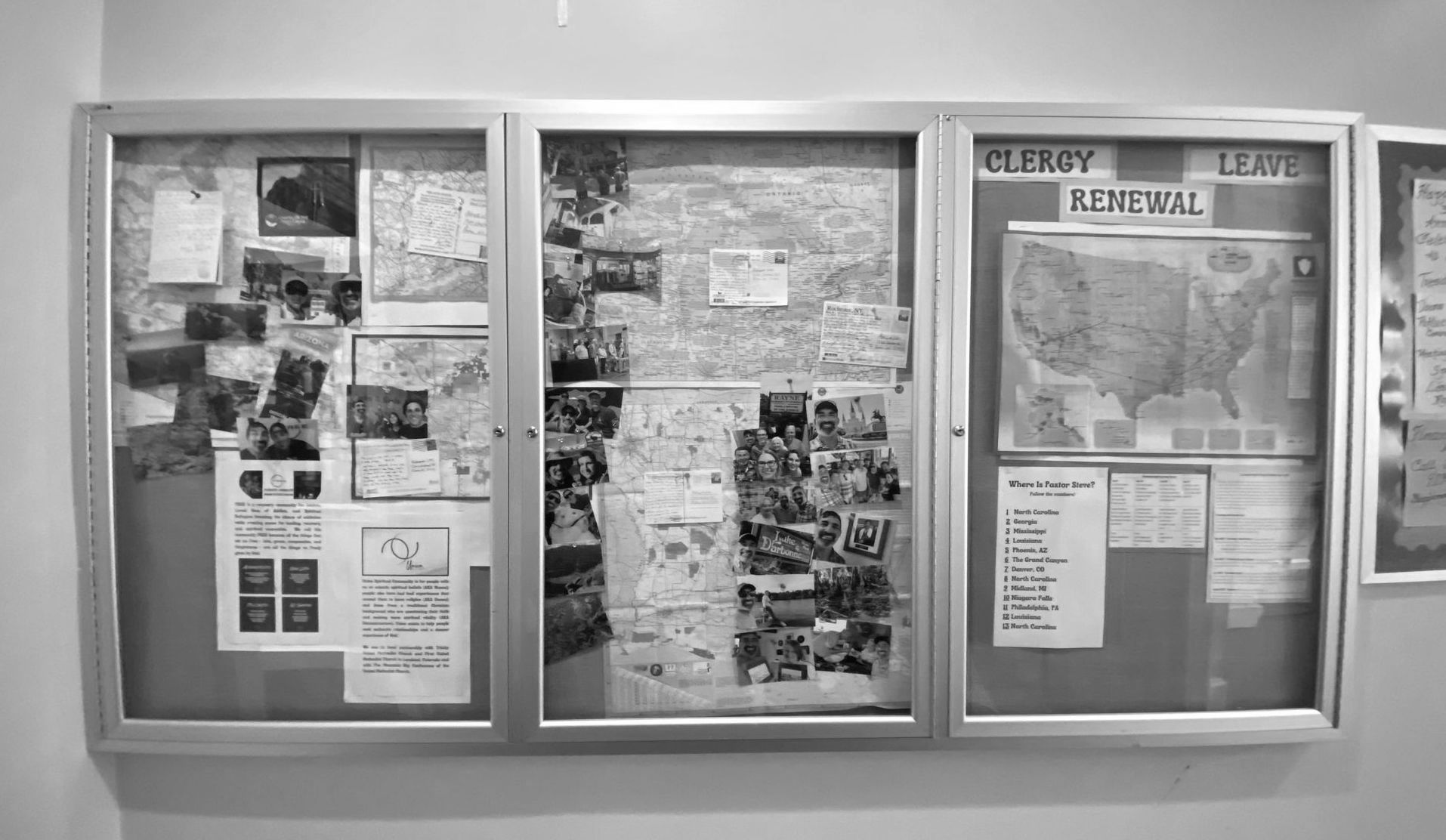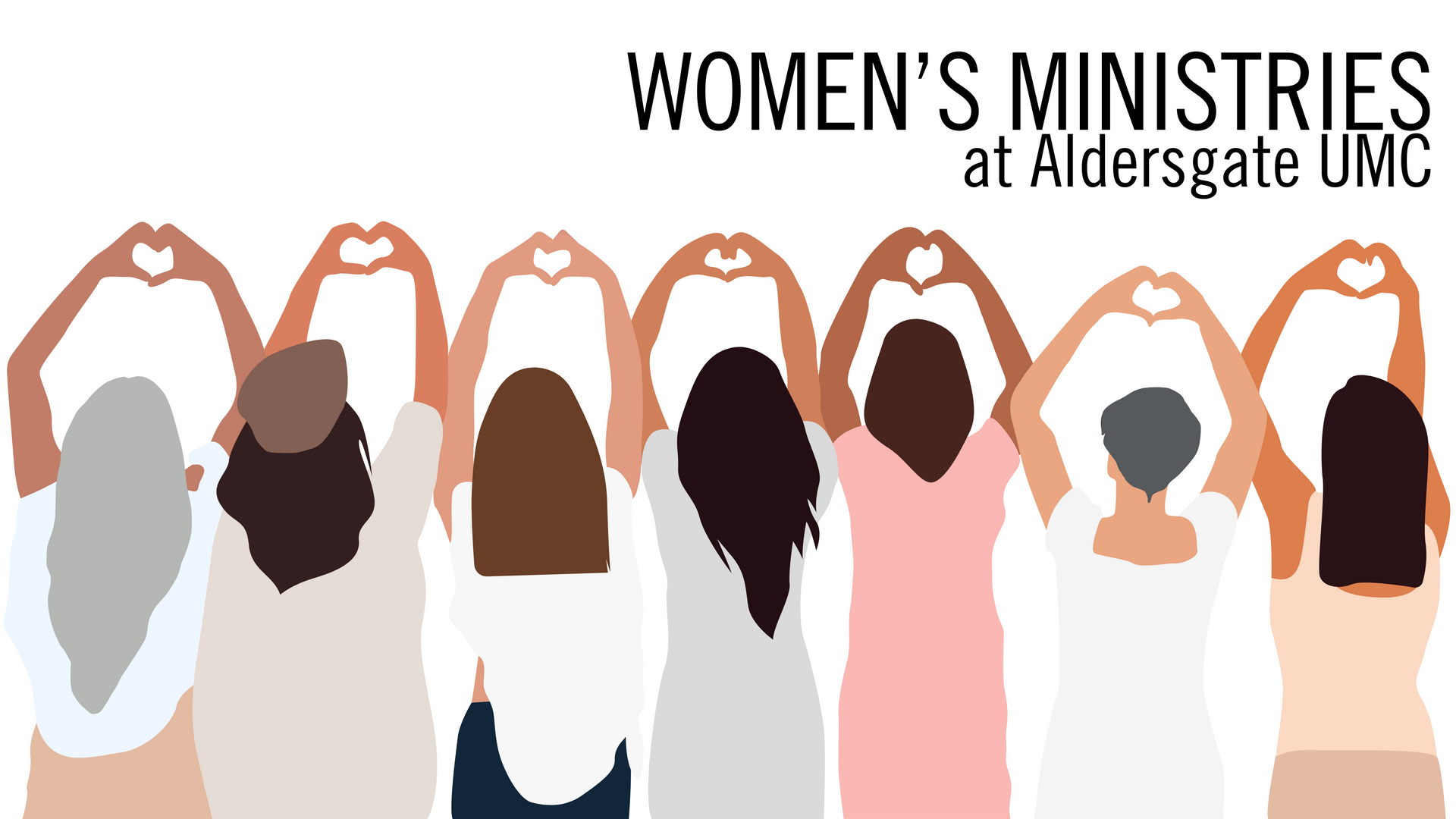SOMETHING BEAUTIFUL
The Aldersgate UMC Blog

Bob Gallegly: (I thought I was generous.) in 1990 I was part of a mission team that traveled from N. TX to Concepcion, Chili (roughly 300 miles south of Santiago) to assist a missionary that our church had been supporting. We had recently packaged 20 soccer balls and shipped them to the missionary and when our Sr. Pastor made contact and found that they had actually received the balls, he asked, “Is there anything else that you need?” Of course, the missionary said, “Yes, we need some workers to help us finish building at the church.” Reverend Canafax took the charge and formed a team of 17 of us that took off for Chili. The team arrived only to find that a building permit had been forgotten and we could not do the primary job that was desired. Undaunted, we separated and 12 of the team went to work building a storage shed at Second Church (the shed would be to lock up the materials and tools for the eventual construction and in the interim, serve as housing for the onsite superintendent). I was part of a group of 5 that went to Fifth Church to help continue a long-neglected building project that would roughly double that church’s total footprint. Both projects were full of their own stories but that is for much later. I was fortunate when the housing assignments were made as I ended up staying at the District Superintendent’s home. The DS and his wife operated the home almost like a halfway house for traveling students coming and going to two local colleges. There were new people around the table at almost every meal and all were anxious to practice their English, much the better as my Spanish was very limited! My most interesting time of the 2 weeks was coming to an end when the DS’s wife offered to take me on a ‘tour’ of the town on Sunday afternoon after church. Of the many highlights of the trip, this tour stands out as she showed me the various areas around the city, culminating with the question, “Would you like to see where I work?” I said of course. I had been working at Fifth Church which was in a pretty impoverished area (annual income around $1500 per household), so it was sobering when she drove me into the poor neighborhood (around $600 annual) and took me to her ‘day school’. I entered the narrow, mud brick building to see where she and some other volunteers conducted school. On my way in, able to see only through the light coming in through a few windows, I noted a row of bricks with a few boards that made up a low display of what looked like children’s clothing. The lady noted my interest and offered that the kids were having what we would call a garage sale, trying to raise some money to turn the power back on. Se up, I asked, “Where did they get the clothes,” and she replied, “They took them off.” Before I left the next day, I made up a story and gave all the cash I had left - $50 and felt bad that I didn’t have more. We thought that we were being generous and the church was most grateful for the progress we made at both sites (shed completed and the expansion very well along), but their generosity towards us when times and resources were very hard to come by was clearly the greater gift. I truly came away with much more than I took with me! A couple of weeks after our return, I got a thank you note from the DS’s wife – she said the $50 paid for their electricity for the next 2 years!

Anne Finch: When I was a child growing up in rural South Carolina, my dad became very ill. I remember standing by the window, praying to God that if He would just heal my dad, I would become a missionary. Eventually, he recovered but I never fulfilled my promise to God. I graduated from high school and college, and in 1967 I moved to Durham to attend graduate school at Duke. While I was a student at Duke, I started doing volunteer work along with other Duke students at Edgemont Community Clinic which was located in east Durham. It served primarily a low-income community. This promise that I had made to God weighed heavily on my mind, and my volunteer work at the clinic reminded me that I still had an unfulfilled promise. Finally in 1972 at the age of 26, I took a leave of absence from my position at the Durham VA Medical Center. I organized a medical mission team from Duke, bought a new extra-long Ford van, filled it full of donated medical supplies, and the three of us drove to Guatemala, Central America. We drove 2,832 miles from sunup to sundown without GPS or cell phones. In Guatemala, I worked for three months in remote areas helping to deliver babies and caring for children battling the diseases caused by malnutrition and contaminated water. I knew that I had to find a way to uphold my part of the bargain that I had made with God. I chose Guatemala because it has one of the highest rates of chronic malnutrition in the world. Forty-nine percent of children under the age of 5 suffer from chronic malnutrition, which can result in stunted growth and an increase in illnesses, and morbidity. One of the places that I volunteered was at a Belgium Catholic Mission in Jocatan, near the Honduras border. I lived with the nuns and worked in the lab and the clinic. One day a nurse handed me a very frail little boy. She motioned for me to hold him tight and then she bowed her head. On that day, this little boy died in my arms, and my life was changed forever. I knew at that moment that I had found God’s purpose for me on this earth, to help the children in Guatemala. By the Grace of God and his guidance, I realized I needed to find a way to help increase the standard of living for the people. That was the basis of teaching women a skill that they could use to help support their families. On a mission trip to Guatemala in 1987, we attended a meeting with a group of women at a local church and asked them if you could have anything, what would you want? They answered in unison, “A sewing machine.” After the meeting Rosario borrowed a jeep, and we traveled down a dusty road to town and purchased the first Singer foot pedal sewing machine. Now there are four sewing schools and over 1,000 graduates. 120 students have signed up to attend classes that begin January 12th. These women have found HOPE in a sewing machine. They are able to learn a skill that they can use to help support their families. The sewing mission promotes women’s empowerment, self-esteem, and self-confidence, and provides an avenue for fellowship. For those of us involved from afar, we continue to experience a spiritual bond that only God can provide. THANK YOU ALDERSGATE. TO GOD BE THE GLORY.

Tim and Robbin Carter: We had a baseball teammate of our son whose house burned down during this fall season. After speaking with the family, we let parents of our team know of their loss. Many parents were able to step in and help with clothes, gift cards, and encouragement. Though facing this tough situation at home, the parents were still able to get their son to every game this season. Our players and parents really rallied around this family. Anonymous: "I give thanks for being raised in a Christian family. However, in spite of always believing in You, I realized that my belief was more in my head than in my whole being. I thank You for touching my heart years later in an Aldersgate type experience that changed my faith to experiential."

Carl Allen: My life and faith went on a different journey last year. In late December, 2023 I was diagnosed with cancer. It was an aggressive form, stage 3. I wondered how long do I have and what is the treatment? On the day of receiving the news, I asked the Lord, what do I do now? The answer I received was stay close to Jesus Christ and be positive every day. I lived each day with this attitude. I had a different feeling within me as the days went by through my treatments. The support of the church and my friends meant so much to me. I felt that my faith grew through this difficult time. The cancer is in remission. I thank God for his healing power and many blessings. All praise and glory to Him. Barbara Atkinson: God guided me softly, gently, and with compassion through a difficult season of grief following the death of my husband. It was HIS strength and power that got me through the darkest days. When I didn’t think I could go on – he provided everything I needed. God is good all the time.

Have you ever walked down a greeting card aisle and wondered why certain holidays exist? As Christians, we obviously understand the genesis of Christmas and Easter, and we even see God’s work in Thanksgiving. (He did create the pecan tree after all. And I’m pretty sure the pie crust is Biblical. Clearly divine work.) Diane, my co-worker, is quick to malign Valentine’s Day, Mother’s Day and Father’s Day, calling them “Greeting Card” holidays, and thus she and her family do not celebrate them. Quick research into Valentine’s Day in the US supports her thesis. My gut reaction to these comments through the years has been, “Sure, maybe they’re corporate, but isn’t it great to find time to celebrate important relationships?” Upon further introspection, I’ve decided that both Diane and I can be correct. A miracle in our divided world! And while I will not ever turn down special gifts or quality time with my husband and children on these alleged holidays, her point gnaws at me. In these most special earthly relationships, why do we need specific days to bring out the best in each other when we should be doing that all year through? I’ve seen this concept called a “Lifestyle of Appreciation.” It’s the idea that we can change our mindset to constantly express gratitude for people, experiences and blessings in our lives. It is more than a moment, but rather a lifestyle that promotes a more positive outlook. It’s taking Monty Python’s advice to always look on the bright side of life. October is known as Pastor Appreciation Month, which is a month set aside to honor the pastor’s contributions and ministry, and acknowledging a calling that is not limited to regular working hours. It’s recognizing the work that is seen and unseen. Saying thank you to Pastor Steve and acknowledging his work and dedication this month is a nice thing to do. And if you feel led to write a note or show appreciation, I feel certain it will be received with warmth and gratitude. But imagine if we honor our pastor by trying to practice what is preached. We volunteer to help a neighbor. We invite someone to a circle meeting. We pray and read to strengthen our personal walk with Jesus. We stop trying to find the things that divide us. We forgive. We practice a Lifestyle of Appreciation, creating a church culture that encourages our Pastor, staff, leaders and members in all months of the year. In the verse below, Paul urges the church to recognize those in ministry who serve the community spiritually. This is ultimately good for the church and community, fostering peace and unity. “Now we ask you, brothers and sisters, to acknowledge those who work hard among you, who care for you in the Lord and who admonish you. Hold them in the highest regard in love because of their work. Live in peace with each other. " -1 Thessalonians 5:12–13 Thank you to Pastor Steve, Rev. Lisa Cole, Rev. Belton Joyner and the others who have served us this year. Let’s take Pastor Appreciation Month as a starting point—not a finish line. Let’s commit to living out a Lifestyle of Appreciation, not just in October, but every day. Write the note. Say the prayer. Extend the invitation. Let’s be the kind of church that doesn’t wait for holidays to celebrate love, service, and community. When we do, we reflect the heart of Christ and build a culture where encouragement flows freely, and gratitude becomes second nature. -Leigh Muller SPRC Chair
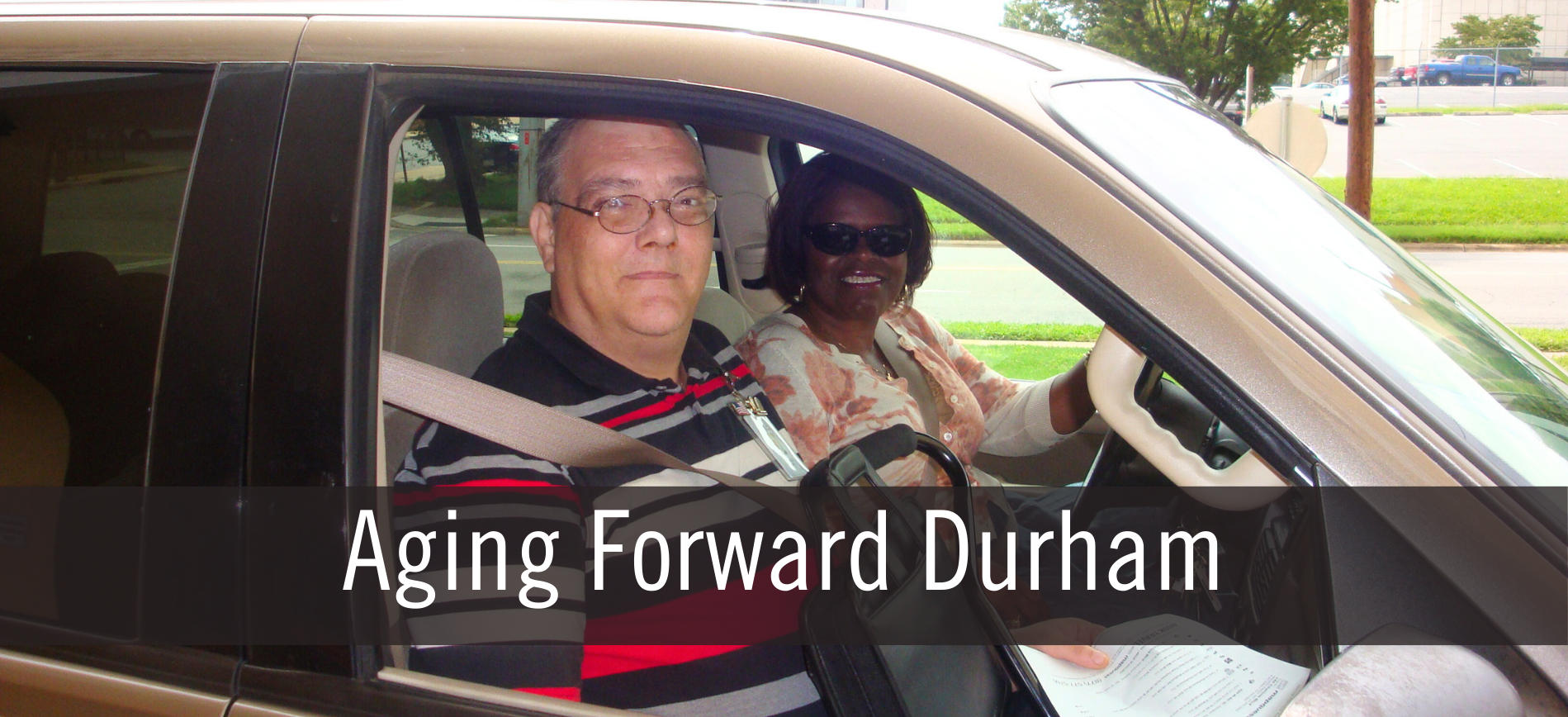
In fall 2024, churches in Northern Durham came together to address the overwhelming need by seniors in North Durham who live independently and can no longer drive but have the need for transportation, specifically to medical appointments. Aging Forward Durham is a 501c3 nonprofit where we believe everyone deserves access to essential medical appointments. That's why, effective April 1, we're proud to offer no-cost transportation services to vital medical appointments for adults aged 65 and over, in the North Durham area. Aging Forward Durham grew out of a series of workshops on Thriving Congregations through the Cooperative Baptist Fellowship of North Carolina. The heart and soul of Aging Forward Durham is Henry Broadway who participated along with Rev. Dr. Randy Carter and others from Temple Baptist Church in Durham, NC. In studying the community around Temple Baptist Church, and to better serve the community, we found the need for transportation for the elderly who are still living independently but unable to drive themselves to medical/dental/eye/physical therapy appointments. In researching possible solutions, we found Aging Forward Alliance. With assistance from Aging Forward Alliance, Aging Forward Durham was created and achieved non-profit status in December 2024. Two other congregations, Aldersgate United Methodist Church and Cole Mill Road Church of Christ, partnered with Temple Baptist to build out the business case and execute the game plan to bring these services to northern Durham County. This included hosting an information session to educate the community on volunteer opportunities and client services. Aging Forward Durham ( www.agingforwarddurham.org ) went live on April 1, 2025 with 18 volunteer drivers vetted and approved and eight clients. We completed our first client trip on May 7th, and the client was so happy to hear this free transportation service was now available for her. In addition, the medical facility where she had her appointment was equally excited about this service being available to their elderly clients who are unable to drive themselves. A win-win-win for our first client, the medical facility, and Aging Forward Durham. In the future, we hope to expand throughout Durham County and offer additional services. To learn more about us, visit our website or send a message to agingforwarddurham@gmail.com .
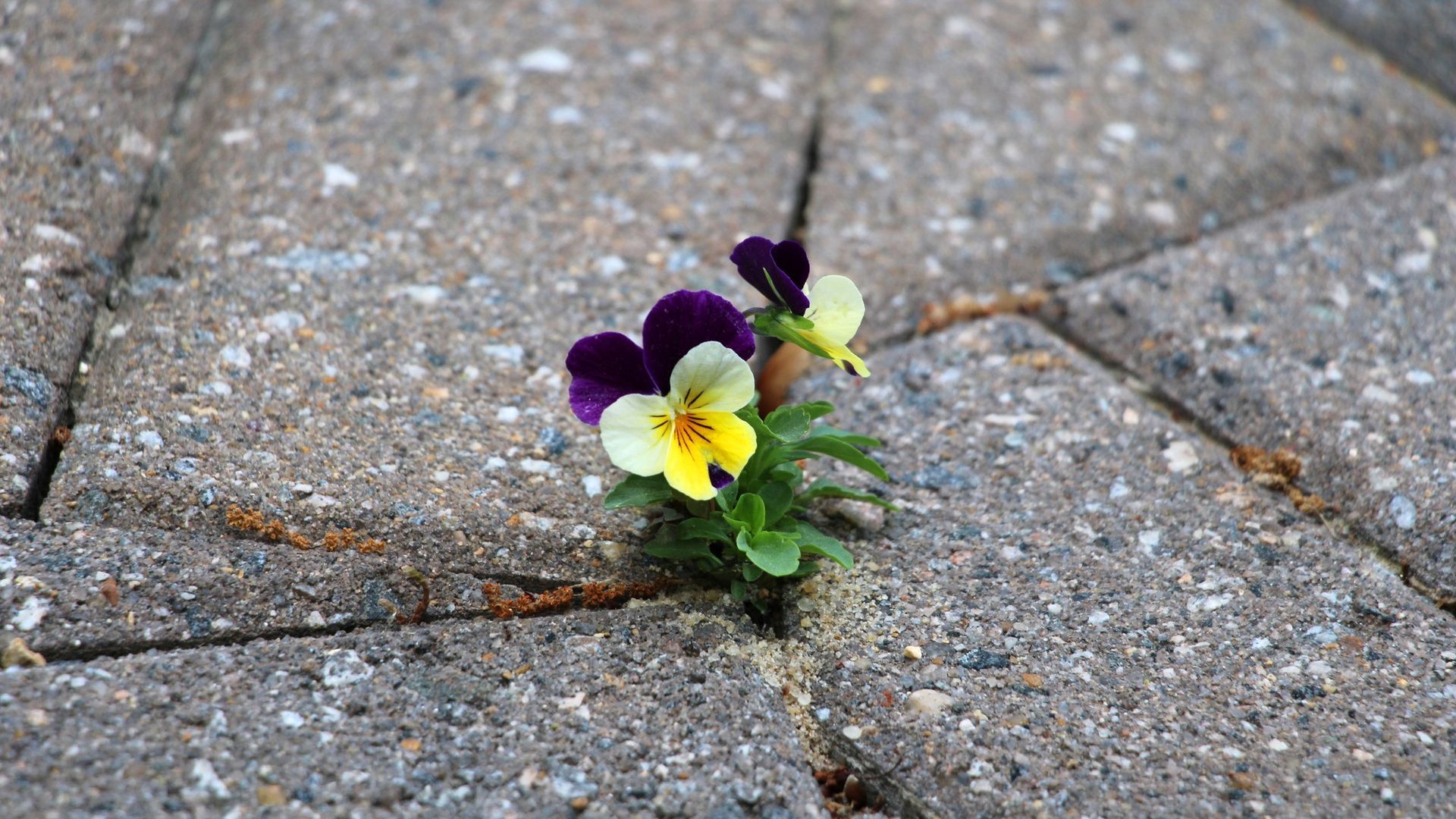
One of my childhood memories is playing Little League baseball. I wasn’t very good at baseball, but I remember to this day our coach saying over and over: “Catch. Turn. Throw.” Over and over again. He would drill us in practice and make us say it with him: Catch. Turn. Throw. Again . Catch. Turn. Throw. Practice. Those drills in our practice were important so that when we got into a game we would know what to do. Earlier this month, our District Superintendent, Rev. Claire Clyburn, preached at Aldersgate, and in her sermon, she mentioned the phrase "practicing resurrection." My mind went back to my Little League days and the importance of practice. Simply put, we practice to get better. If we’re willing to practice, it might mean that we want to get good at it. To establish a level of comfort, and build our confidence. To build "muscle memory." To practice resurrection means we don’t just believe in it—we live it out, over and over again. We look for signs of new life in old places. We speak hope even when it feels easier to stay quiet. We forgive when bitterness wants to take root. We show up again when we’d rather stay away. And like anything worth doing, resurrection takes practice. That’s one of the great gifts of the church: it’s a place where we get to practice resurrection together. We don’t have to have it all figured out. We get to show up, week after week, learning what it means to love boldly, serve joyfully, and lead courageously. We get to practice listening, practice trusting, practice believing that God’s grace is bigger than our failures. And maybe most importantly, church is a place where we practice telling our stories. Because resurrection isn’t just something that happened to Jesus—it’s something that’s happening in us. Every time we come through something hard, or find peace in the middle of a storm, or sense God’s presence in our pain—we experience resurrection. And those are stories worth telling. When we tell our stories of grace and struggle, of doubt and redemption, we make room for others to do the same. We build community not on perfection, but on honesty. We remind each other that God is not done with us yet. Resurrection is more than an Easter event—it’s a daily invitation. It’s a way of life shaped by the promise that God is always bringing something new out of what feels broken, lost, or dead. When we practice resurrection, we bring that new world into this one. We live into the reality that God is not finished with us or with the world. We become signs of hope, seeds of peace, and agents of joy in a world that’s hungry for all three. I’ve often said that Aldersgate is at its best at times other than Sunday morning. And I think that's in part because our church is active seven days a week: there’s always something going on, from Scouts to choir to AA to pickleball to Upward soccer to the Genesis Garden. But it’s more than that. It’s our people practicing resurrection—being what Dr. Daniel Costelo calls "Spirit-bearers"—people who inhale the grace of God and exhale it out into the world. It’s being the church in places where the church is needed the most, in our homes and in our community. So let’s keep practicing resurrection — together. Let’s keep showing up for each other. Let’s keep naming the hope we’ve found. Let’s keep telling our stories—because someone needs to hear them. And let’s keep trusting that new life is always just around the corner. And God is there, waiting for us.
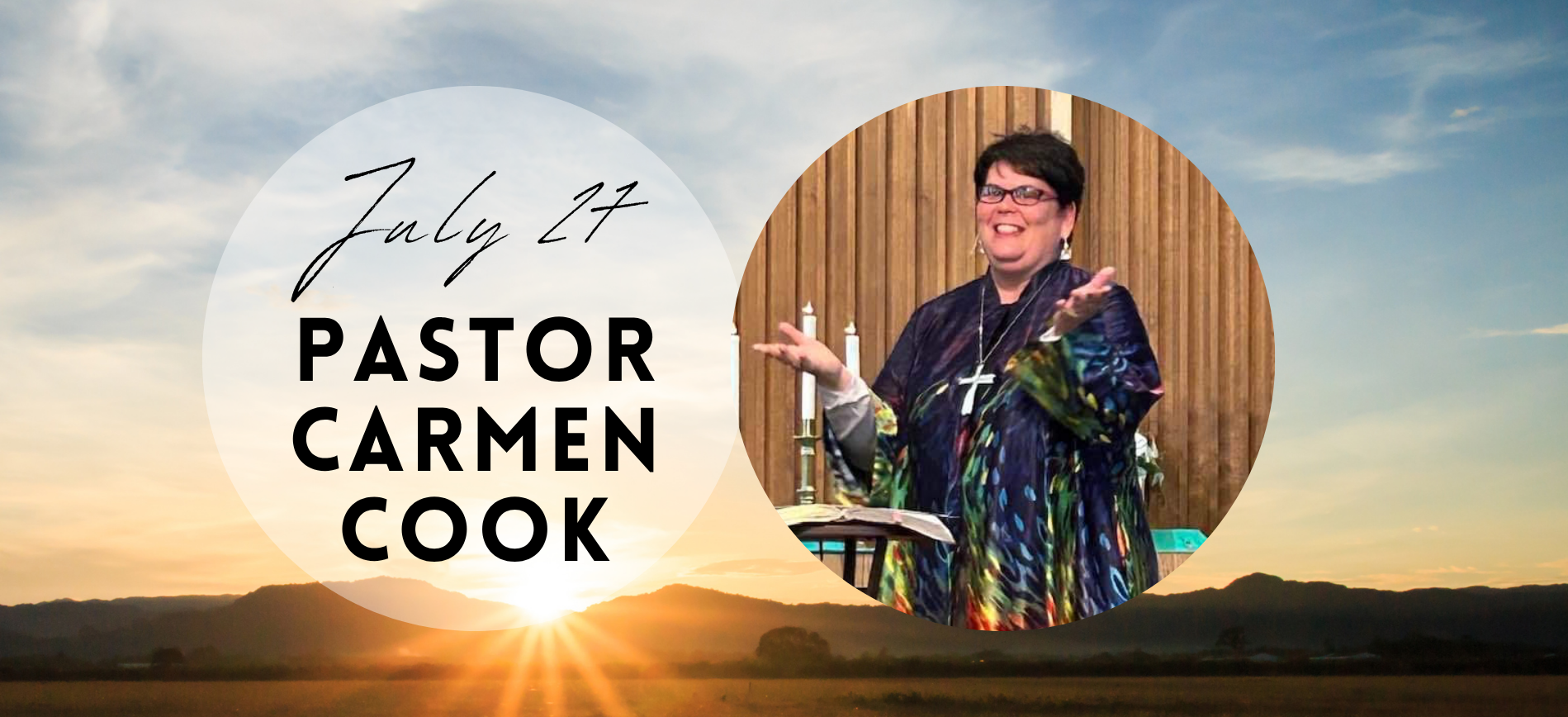
I was born in Illinois but my family moved to South Florida when I was two. My father became a pastor of a Free Will Baptist church in South Florida and I spent my childhood there, only leaving when I went to college. I was raised in a very missions-oriented home and church. South Florida was the jumping off and returning point for most, if not all, of the Free Will Baptist missionaries in those days. Our home became a sanctuary for them. During my childhood years my family also worked with Cuban churches, immigrants, and those in poverty. As a result, I have many years of experience in cross-cultural evangelism. In my life before full-time ministry I was a Business Solutions Professional for Michigan Works! and have experience speaking at the Governor’s Conference and to different organizations and various groups across the state of Michigan. I was also a High School History and English teacher in Southern Georgia. I have traveled to Panama, the Philippines, Uganda, and Kenya holding revival services, training leaders and pastors, and providing Bible education. I am also involved in teaching lay servant classes for the Michigan Conference. I taught numerous leadership courses on-line to companies through the pandemic. And during the pandemic I began to preach on the radio each week. I am currently serving as a United Methodist minister and have been for the past 11 years. I am currently the Senior Pastor at Auburn United Methodist, arriving here in July of 2022. Here is what I am passionate about – preaching and teaching the Word of God, bringing souls to Christ, equipping the saints to walk their faith journey, and doing this faith journey together. While there is more to add to the list, these take first place and direct all the rest. I preach the Word of God and I promise to love you just as you are. My mother is Native American and we belong to the Chickasaw Nation. After doing a DNA test we confirmed what I long suspected – we also have African ancestry and a few other things. I was once asked: how does who I am affect me? I honestly don’t know. I just am who I am – proud of who I am and where I come from but still a person like anyone else. I am impacted by my ancestry, true, but I am not defined by it. I am defined by who I am in Christ. That is the identity that I claim. I am married, creeping up on 21 years (where has the time gone?!). We do not have children, but we do have a four-legged child named Caesar who goes with me almost everywhere as he is my protector and friend. I enjoy playing the piano, hunting, fishing, a good book, the theater, and finding rocks. While serving in Kenya I was honored to be given the name Wairimu, which means “Daughter of the King”. I am just a normal person who likes to cook and hates to do the dishes and who has answered the call to serve the Lord in pastoral ministry. I know there are many who think that a woman shouldn’t be a pastor, but I can’t find that in the Bible (I really looked hard while trying to get out of this!). And the truth of it is – God called me, so what was I going to do? The result is, as I have journeyed the road of being a pastor I have discovered the great joy of serving the Lord in this way. I am humbled that He would say to me, “Carmen, do you love me? Then, feed my sheep.” Life Verses Proverbs 3:5,6 “Trust in the LORD with all your heart, And lean not on your own understanding; In all your ways acknowledge Him, And He shall direct your paths.” Ephesians 5:1,2 “Therefore be imitators of God as dear children. And walk in love, as Christ also has loved us and given Himself for us, an offering and a sacrifice to God for a sweet-smelling aroma.”
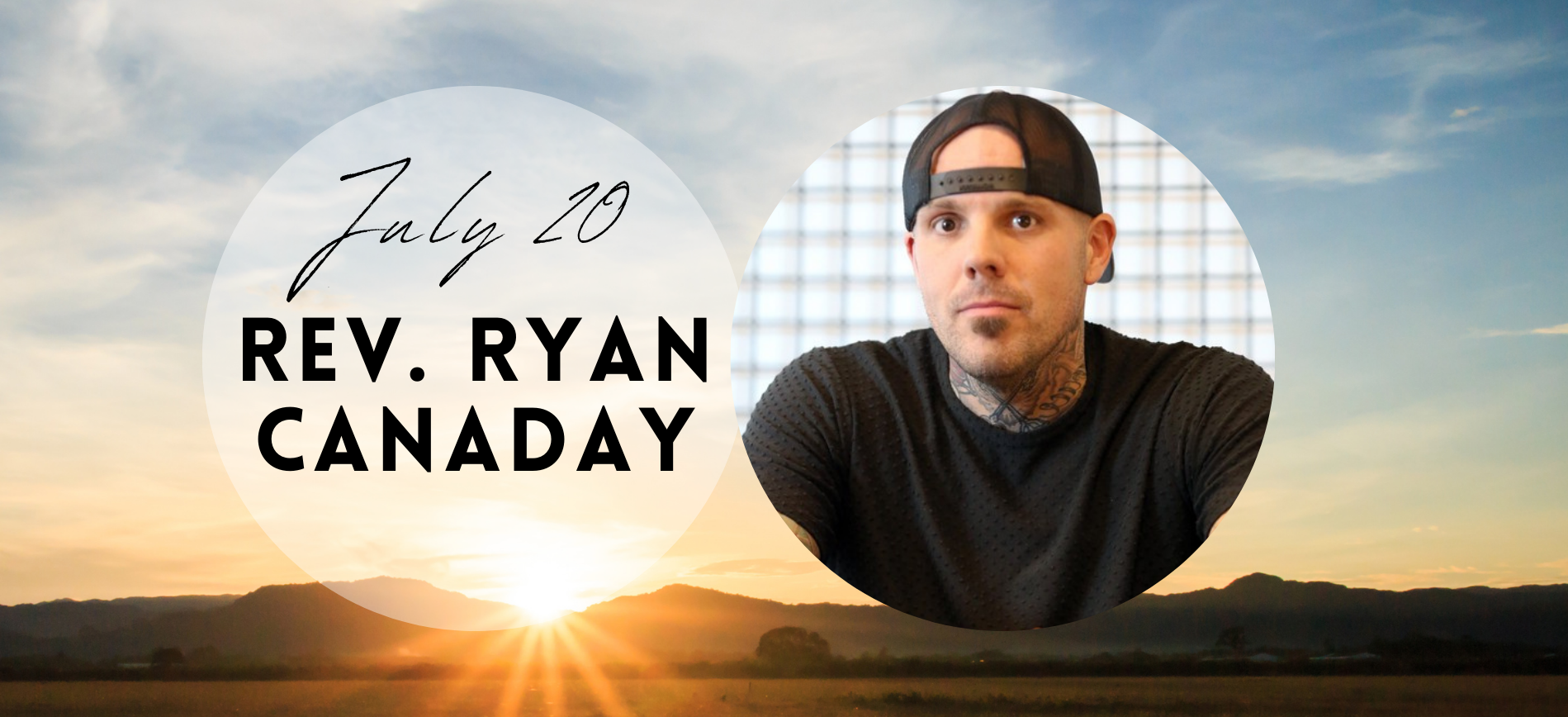
Text below taken from the FREE Recovery Community website . “I'm Ryan. I'm an alcoholic.” These were the scariest words I ever uttered. The first time I said these words, I did so with fear and trembling. My voice was shaky. My hands were clammy. I didn't know if I would say it when it came around to me. My head was swirling. All I could think about was: “I'm a pastor. What will people think about me? I don't want to do this. I don't want to be here. How did I get here anyway...how'd it get this bad? It was never supposed to be like this.” But I said the words. I admitted it. And I felt lighter...a burden had been lifted in a way I never could have imagined. I felt like Jacob [from the Genesis story], on the run from God, his past, himself, everything. Jacob wasn’t free. But as the story progressed, he found himself in a brutal wrestling match with God. There were wounds, flesh wounds and ego wounds. There at the banks of the Jabbok River, Jacob was asked, “Who are you?” For the first time he said his own name: “I am Jacob”. And it’s like God said: “Good. We’ve got some work to do and now we can move forward.” In that moment of admitting who I was for the first time—in all the fear and unknowing—I knew what it was like to finally say “no” to shame and “yes” to a path of being free. It was like saying my name again for the first time. Thanks be to God and some friends who showed me the way out of the chaos through the 12 steps, I have been sober since January 7, 2013. God has removed from me the obsession of the drink and I now know a new way of life. My “why”, my calling, the thing that gets me out of bed, is as clear as ever: to help others find God and beauty in the midst of mess and brokenness. In the Spring of 2018 my wife, Tami, and I started asking the question: What would it be like to start a faith community that centers on issues of addiction and recovery? Not to go to the inner city and start something, but to start it right here in our own backyard [literally], in the heart of the suburbs. We put together a leadership team of 12 people to begin the conversation of starting something new. Starting a new thing is scary. If you’re passionate about it, it will always come with a bit of doubt and anxiety. It will always come with some twists and turns. The week before our first leadership team meeting, we received dreadful news. Nick, one of the guys on our team, was 20 years old and found dead of a drug overdose early that morning. Out of the gates we had the poignant reminder that the disease of addiction is cunning, baffling, and powerful. It is relentless and always seeks to destroy life. The need in our community is real. I was tired of seeing my friends die. The sub-story was growing old too: they didn’t feel like they belonged with God or the Church. We wanted to break the silence of addiction and create space for healing, recovery, and spiritual connection. So Tami and I started FREE and we began hosting gatherings on Saturday nights in our backyard. We didn’t know who would show up or if anyone would show up. We lived with that question for a number of weeks. That’s the reality of starting the new thing to which God is calling you. But each week FREE [in our backyard] was filled with Addicts, Loved Ones of Addicts, and Spiritual Refugees. We wanted to remind them—and still want to remind them—that God loves them, God is for them, and God has not forgotten about them. During our gatherings we celebrate milestones of recovery and all kinds joy that we experience in the journey. I teach on the stories from Scripture about a God who is filled with love, grace, compassion, and forgiveness. We have storytellers that share their experiences with addiction and recovery. We have music [sometimes live, sometimes pre-recorded]—everything from Eminem to Hillsong. We pray together. And we always have coffee...lots and lots of coffee. What a wild ride this journey has been, and will continue to be. God keeps giving me a reason to keep saying “yes” to the path of being free, and to walk with others on this path. It’s about learning to live one day at a time and trusting God in the next step, and living into the constant reminder: this journey is about progress, not perfection.
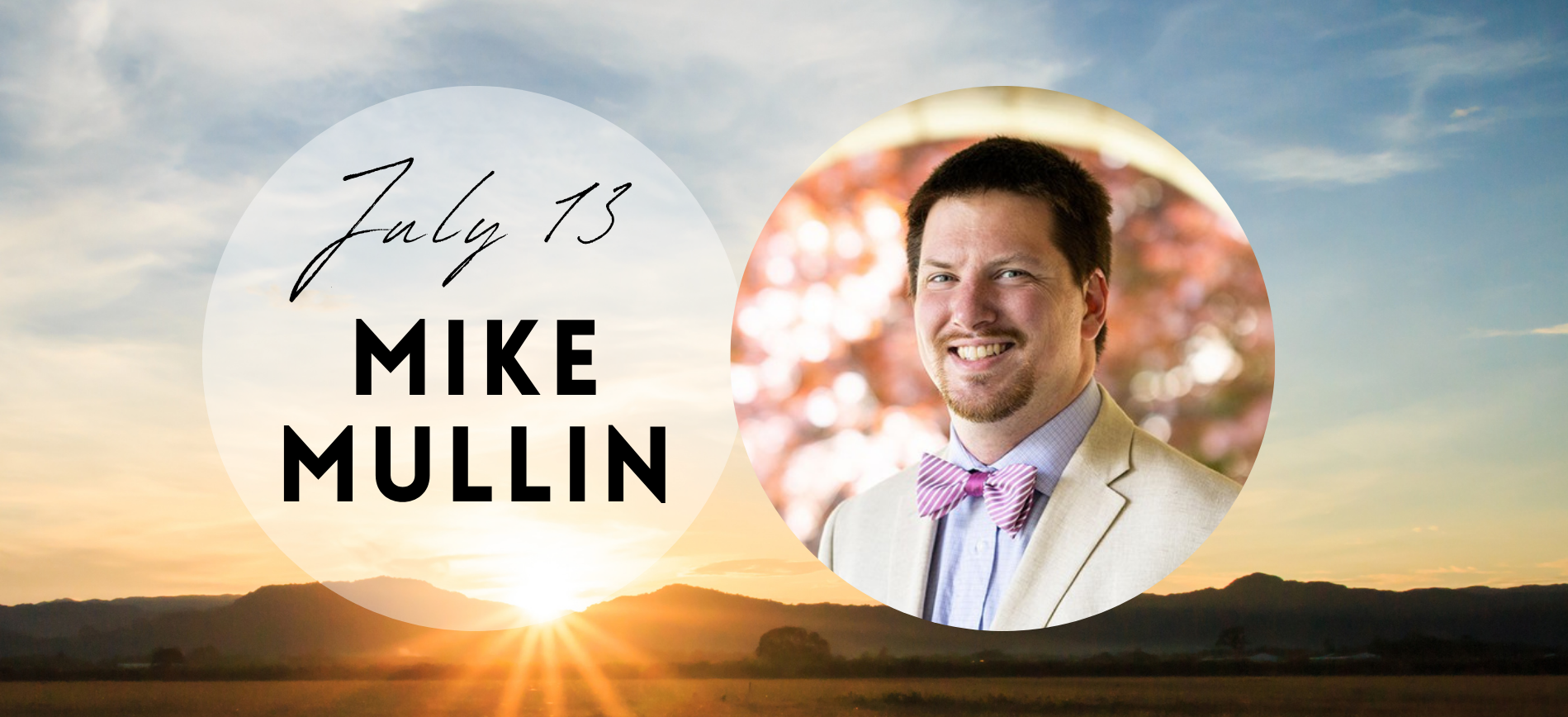
Mike joined the staff at Asbury First in August of 2013 as the youth minister. Mike grew up in Pittsburgh, PA, received a B.A. in Christian Education and Music (percussion) at Westminster College in New Wilmington, PA, and completed his M.Div. at Colgate Rochester Crozer Divinity School in 2017. Mike has a wife and two children, and loves to go on adventures. From geo-caching, to rock climbing, to mountain biking, it seems there is always a great reason to get outside and enjoy creation. The spirit of adventure also includes discovering new experiences, traveling, and trying new foods. As the Minister for Youth and Discipleship, Mike hopes that Asbury First is a place where everyone might be invited to partake in an adventure of faith. All are encouraged to engage, to listen, to question, and to help expand our understanding of what it means to come together as a diverse community seeking to do more good—even as we push the boundaries of our own comfort zones. (Text above found at https://asburyfirstumc.fireside.fm/hosts/mike-mullin .) Look below for photos and a video Pastor Steve sent us from his visit to Asbury First UMC.
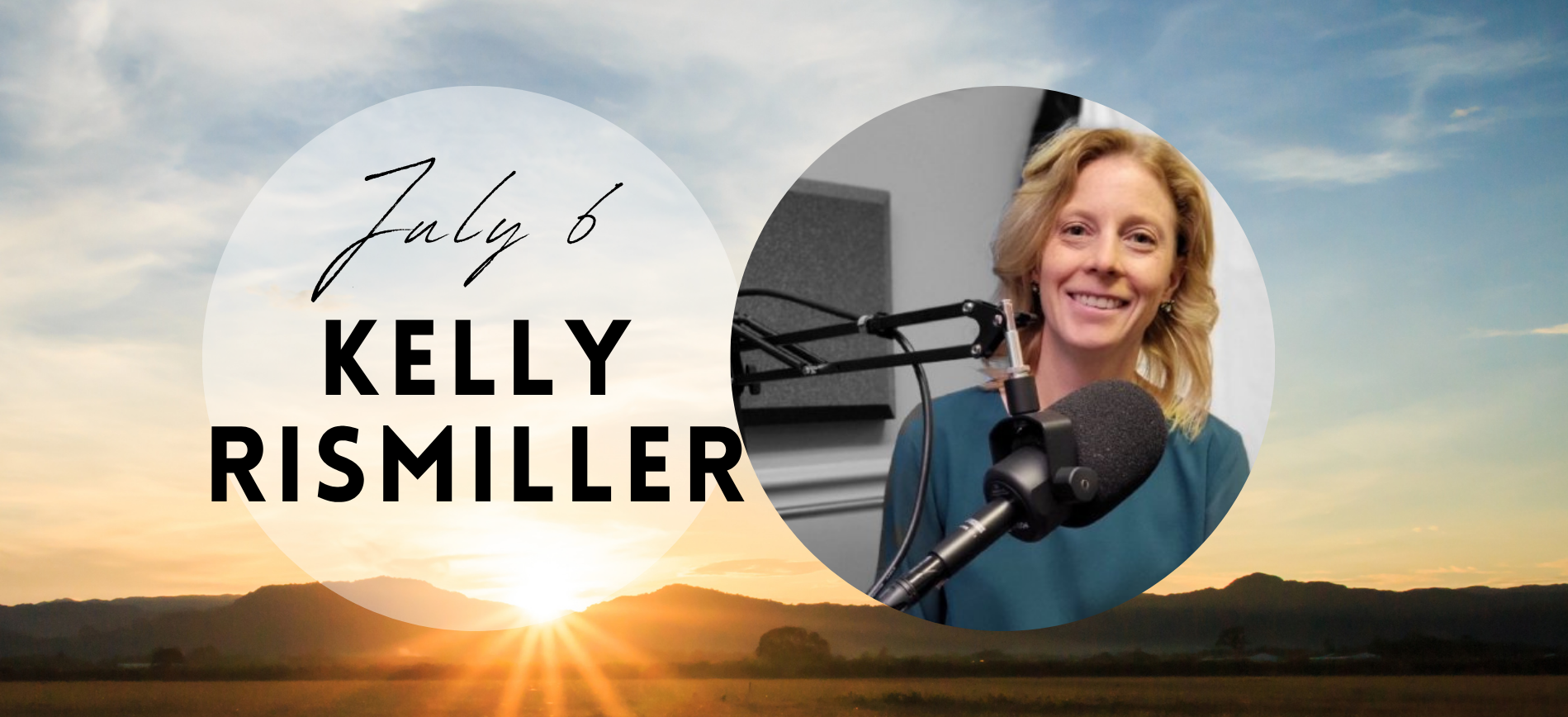
As the Director of Leadership Development and Volunteer Recruitment at West Lawn UMC, Kelly identifies the amazing sources of talent in the pews, encourages everyone to be engaged in some volunteer activity, and empowers all to be the church as an act of discipleship in action. Kelly began serving West Lawn UMC in 2016 as their Director of Communications and Special Programs. She spent eight years in that role, then served as their Director of Children and Family Ministries for nearly eight years. In her new role as Director of Leadership Development and Volunteer Recruitment, she makes newcomers feel “at home” in the church family and helps each individual along their unique discipleship path. Kelly serves as the primary link between volunteers, ministry leaders and the staff and cultivates relationship-building experiences for the entire congregation. Her goal is to promote a growing community of faith where everyone feels connected to their West Lawn Church home and family. To learn more about Kelly, check out this podcast episode on which West Lawn UMC's Pastor Chris interviews her about her life and her spiritual journey.
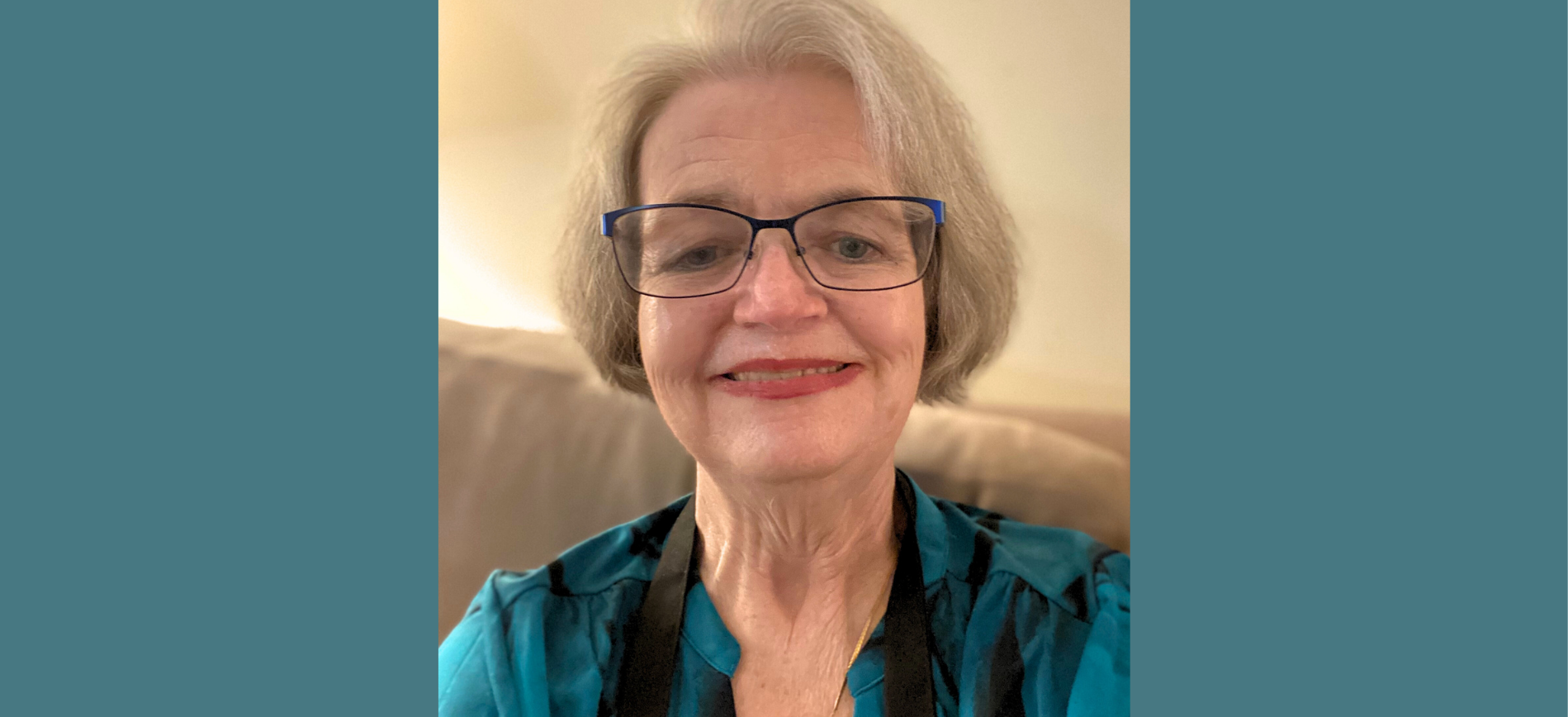
Aldersgate UMC's two Certified Lay Ministers, John Hall and Barbara Atkinson, serve and bless our church in many ways. In this week's and last week's blog posts, we hear their stories of calling and service. Today, let's meet Barbara Atkinson. When did you hear a call to become a Certified Lay Minister? What was that call like? Around 2011, I had recently emerged from a season of significant life changes and healing from loss. I felt God saying to me, “Can’t you walk a little closer with me?” It was palpable in my heart, but I wasn’t sure what it would look like and what I was supposed to be doing. I made a commitment to become more aware of his presence in daily life and spend more time in prayer. Then, in 2012, I became a part of that same first-ever Certified Lay Minister class that John Hall was in. We had not previously discussed the program, and we didn't know we were both being drawn to this until we both showed up to class. I entered the process still not sure this was where I was supposed to be. There was no map. God was just asking me to take the next faithful step, and that’s what I did. Talk about your experience in the training & certification process. How was it? The months of training in the the CLM program provided a way for me to understand and trust God’s plan for my life and my place in the United Methodist Church. It became an opportunity for me learn about the history of the UMC and to hone my personal skills of leading worship, praying in public and offering care to others within the church. It’s a great program. I learned that the more involved we have our laity, the stronger the church is. We all have different gifts and we’re called to use them as God intends. I think it’s important for each person to spend time figuring that out and not try to be a clone of someone else. I learned to look for people who have some of the gifts that are needed in ministry that maybe they’re unaware of and opening up a conversation about where God might be leading them. In Lay Servant Ministry, the United Methodist Church is saying, we want to equip you. We know how valuable you are. Part of the CLM program is that you’re charged with forming a Mutual Ministry Team. That team guides and holds me accountable to the covenant I have with the church. That’s the unique part of being a CLM: this is not just some volunteer position. This is a covenant relationship I hold with the church, and I take that very seriously. Since becoming a Certified Lay Minister, what have you learned about God? What have you learned about the Church? God is always doing something new to draw us ever closer to himself and will stop at nothing to make that happen. And t he Church is an amazing, vibrant entity. It will always, always exist. I believe that in my very core. The Church in the future may look different than it does now, but it will continue to thrive and be a place where people experience love and compassion and acceptance. It will continue because of Emmanuel, God with us, and our response to that truth. What is the most challenging part and the most rewarding part of being a Certified Lay Minister? The challenging part of being a CLM is discerning God’s voice about whether I’m going to be his faithful servant. Sometimes, to be true to my calling, I have to say no to a request. Sometimes I’m led to be a voice to others who feel like they are on the margins or left out by the church. But both of those callings can be unpopular! Staying true to my desire to walk closer to my Savior each and every day is the challenging part for me. And sometimes it involves tough decisions to make that happen. The rewarding part? The opportunity to live out my call to ministry in the framework of a supportive and caring church. I feel honored when I can provide safe and sacred space for people to explore their relationship with God. This happens sometimes during spiritual direction, sometimes when I’m teaching Sunday School, and sometimes during times of visitation and caring for others. The real reward for me is providing opportunities for others to peel back the layers of their relationship with God. You mentioned that you are a spiritual director. Can you say more about that? Within a couple weeks after completing the CLM certification, I felt God once again bidding me to walk closer to him. I thought, “Really? Did I not just come through this?” But it was a very profound feeling. After a lot of prayer, I entered a two-year program to become a spiritual director. I learned the value of spiritual disciplines in my life and learned how to live each day knowing I am God’s beloved. I have been a spiritual director for a little over ten years now, and this is truly the sweet spot in my life. I feel so honored and privileged to accompany others on their faith journey. Read this previous blog post to learn more about lay ministry in the United Methodist Church.
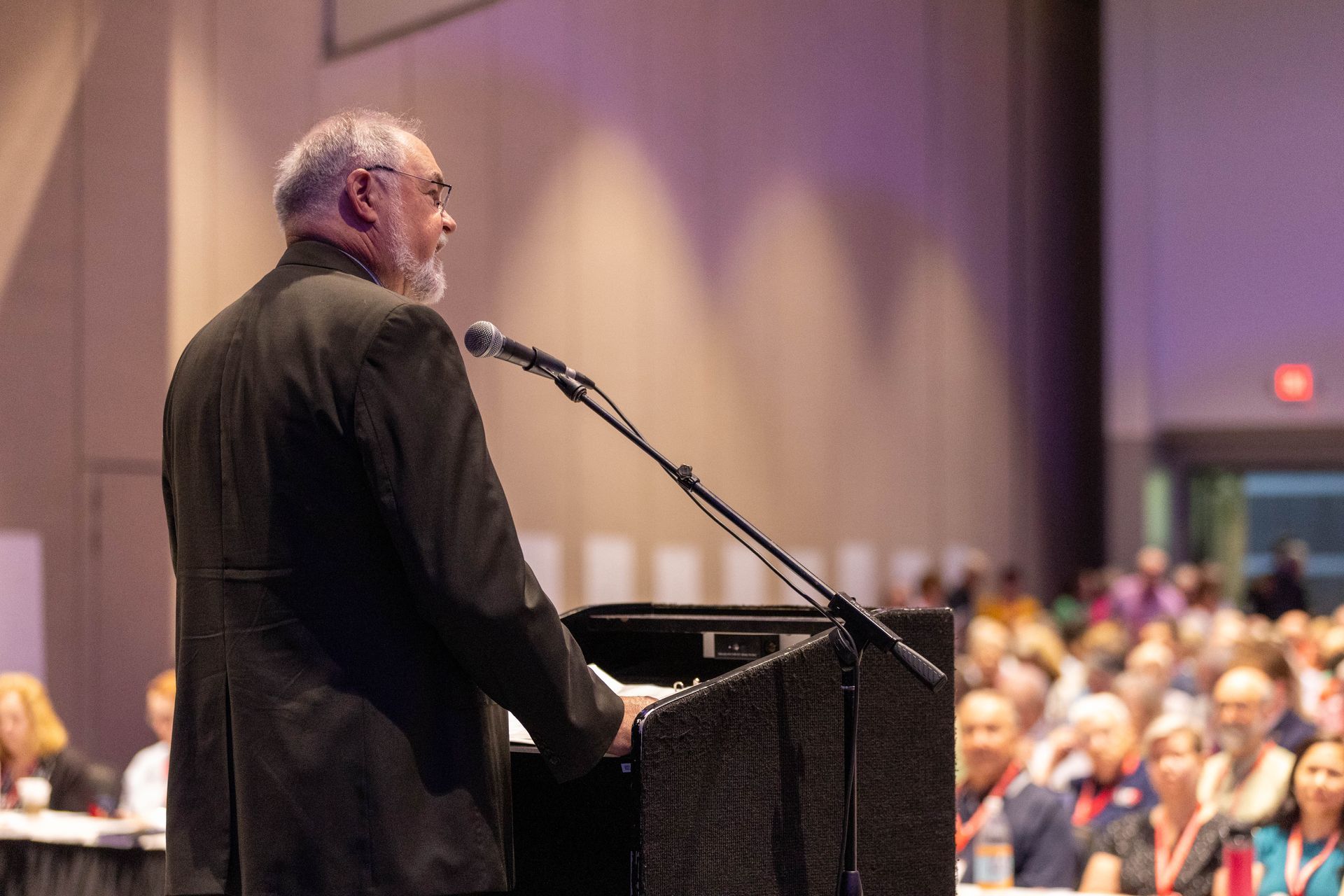
Aldersgate UMC's two Certified Lay Ministers, John Hall and Barbara Atkinson, serve and bless our church in many ways. In this week's and next week's blog posts, we will hear their stories of calling and service. When did you hear a call to become a Certified Lay Minister? What was that call like? My calling to lay ministry occurred in 2012 . One of our longtime members at Aldersgate asked me to help him with rebuilding some of the sound equipment in our sanctuary. He was all about "removing distractions"—providing clear, clean sound with no clicks or buzz or hum. While working on this project, I sensed a nudge, a restlessness. Around that time, I was invited to a breakfast meeting with our District Superintendent. He told me he saw gifts in me and asked me to join a discernment group. This group became the first Certified Lay Ministry cohort for what was then the Durham District, now the Corridor District, of the NC Conference. It was exciting to explore ministry possibilities as a group and have a safe place to openly talk about the role of laity in the United Methodist Church. Through our discussions, we came to understand that Certified Lay Ministry was just one of the many ways that laypeople could serve in important, vital roles in ministry in the local church. Talk about your experience in the training & certification process. How was it? Our formal training was an eight-month group training experience led by a pastor from a neighboring church. We discussed sensing and responding to our call to ministry, the organization and administration of the church, the history of our church, and practical aspects of ministry like preaching, leading worship, and congregational care. Part of the training process was to establish an accountability group, also called a Mutual Ministry Team. This group was made up of three members of Aldersgate, our pastor (who served as my mentor), and our District Superintendent. Together we developed a ministry covenant that described the expectations and responsibilities of our shared ministry for both me and Aldersgate. Following the formal training, I interviewed with our District Committee on Ordained Ministry (dCOM), who affirmed my calling to ministry and provided useful guidance on living into a covenant relationship. I continue to regularly meet with my ministry team to review and make updates to our ministry covenant as needed. Every two years, there’s a formal review process that includes another interview with the dCOM to be sure this ministry is still relevant and useful for all of us. Since becoming a Certified Lay Minister, what have you learned about God? What have you learned about the Church? I’ve learned that God equips the called. God is always busy continuing the creation story, and God prepares, shapes, and empowers us to be a part of what God is doing. I’ve learned we need each other in our journey. I’ve learned that God has expectations of me. Our church embraces the "priesthood of all believers." We believe everyone has a place, everyone is gifted, and everyone is called to use their gifts in the building of God’s Kingdom. There are some specific callings, like Certified Lay Ministry, but there’s a place for every person to explore, discover, and use their gifts. What is the most challenging part and the most rewarding part of being a Certified Lay Minister? Most challenging? The word "Minister" in Certified Lay Minister can be confusing, so I spend a fair amount of time explaining it. That’s not a bad thing, as it usually leads to a more engaging discussion and a better understanding of the role of lay folks in our church. Most rewarding? Being a part of a ministry team that equips and supports me and our ministry. The partnership between clergy and laity takes a lot of work and it’s really important. When it works well, it’s amazing. My ministry team is really good at encouraging me and asking me the right questions to provide guidance and feedback. Creating spaces and places where folks can explore and discover their calling and live it out is deeply rewarding to me. Together, we celebrate the many ways laity serve in important, vital roles in ministry in the local church. The United Methodist Church is somewhat unique in this aspect, providing both formal ways (such as Certified Lay Servant/Speaker/Minister, Deaconess/Home Missioner) as well as less formal ways (such as local church leadership - Church Council, Finance, Missions) and those who labor without recognition or fanfare - like altar guild and choir. All of these, and more, are needed and necessary, and are important in building up the body of the church. The life and work of the Church belong to us all. Read last week's blog post to learn more about lay ministry in the United Methodist Church.
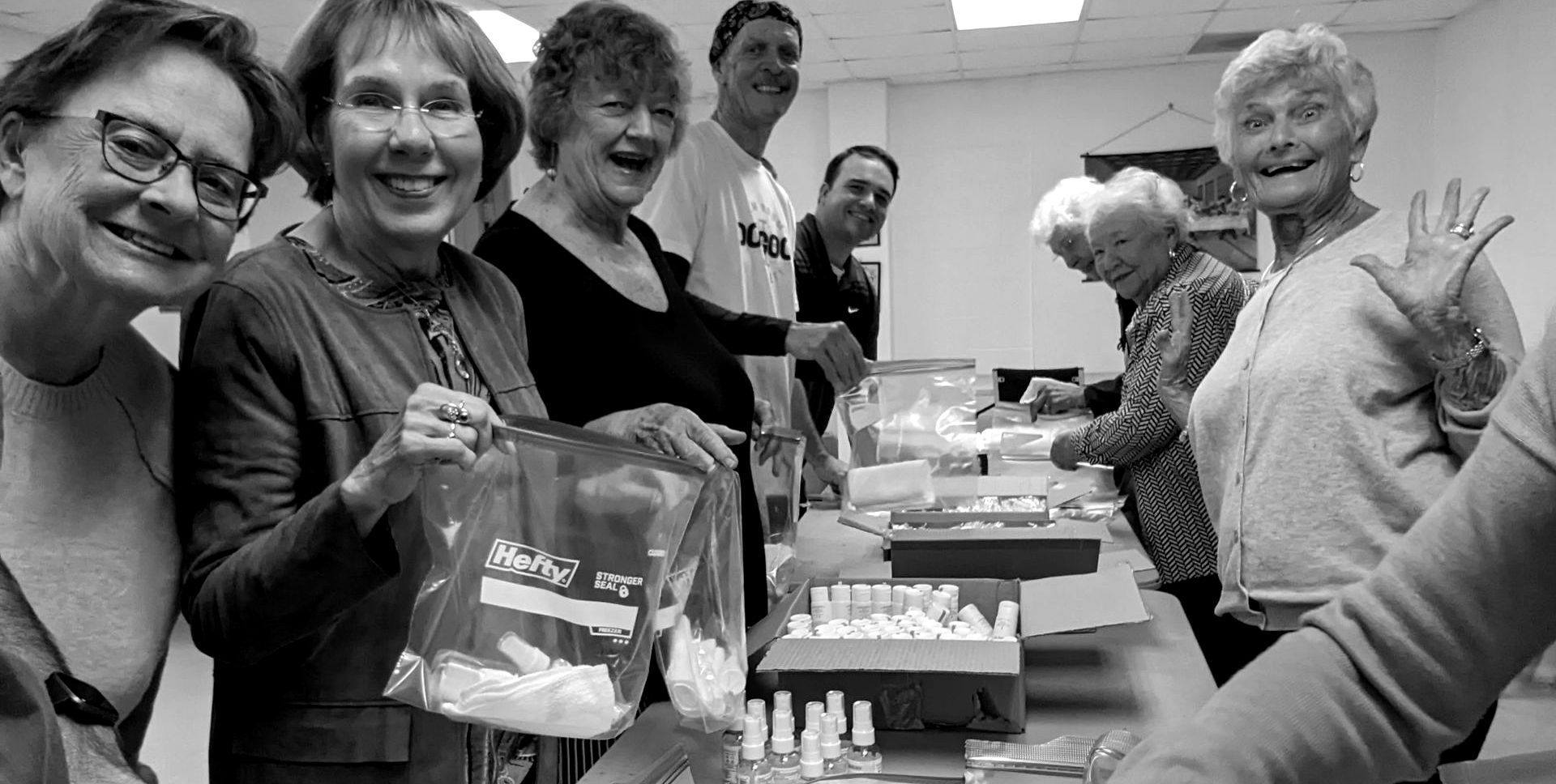
When Christians speak about "calling," many people immediately think of ordained ministry: pastor, priest, deacon, elder, bishop. Words differ across denominations for the people whose vocation is ordination. But, as the Book of Discipline says, "The ministry of clergy and laity is complementary. No minister is subordinate to another." All Christians, lay and ordained, are called to "love the Lord your God with all your heart and with all your soul and with all your mind and with all your strength" (Mark 12:30). For more than 200 years, Methodists have enthusiastically celebrated and encouraged laypeople's ministries. Today, this tradition continues through church structures which are carefully balanced between the clergy and the laity. Laypeople lead many ministries, great and small, within local church contexts, and many options for formal training in lay service are available. For a Christian called to serving the church outside an ordained context, few Christian traditions offer more opportunities to live out your vocation. Have you felt a tug on your heart toward serving the church? Are you unsure of where to start? You are warmly invited to the Lay Servant Ministries Day of Discovery coming up on Saturday, May 31. Until then, explore the resources below, and join us in this prayer. Holy Spirit, we pray for the vocations of all laypeople. Thank you for generously granting spiritual gifts to each one of your children. Please speak to each person, including myself, with clarity and power. Call each of us to love and service in ways that nourish our souls. And by your work, done through our hands, build your holy kingdom here on earth. Amen. GENERAL INFORMATION North Carolina Conference Laity Ministries Resource UMC: Laity Ministry (Website) Lay Servant Ministries Course Descriptions and Equipping Resources (PDF Catalog) BeADisciple Online Courses (Website) SPECIFIC ROLES: A FEW EXAMPLES Certified Lay Minister Certified lay ministers (CLMs) are laity who have answered God’s call on their life through a concrete and long-term commitment to the local church. Some CLMs serve as lay pastors of congregations. Others engage in specific ministry projects in their own local church. All CLMs work as part of a ministry team and under the direct supervision of a licensed or ordained pastor. ( source ) Certified Lay Speaker "The certified lay speaker program exists to train, equip, and support laity who are responding to God’s call through the specialized ministry of preaching." ( source ) Deaconess / Home Missioner "Deaconesses and Home Missioners are laywomen and laymen who are called by God to be in a lifetime relationship in The United Methodist Church for engagement with a full-time vocation in ministries of love, justice, and service." ( source ) Global Missionaries "United Methodist missionaries serve in about 60 different countries in many types of professional careers, including as pastors, evangelists and church coordinators; teachers and educators; doctors, nurses and other health workers; agriculturists; development specialists; community organizers and peacebuilders." ( source )
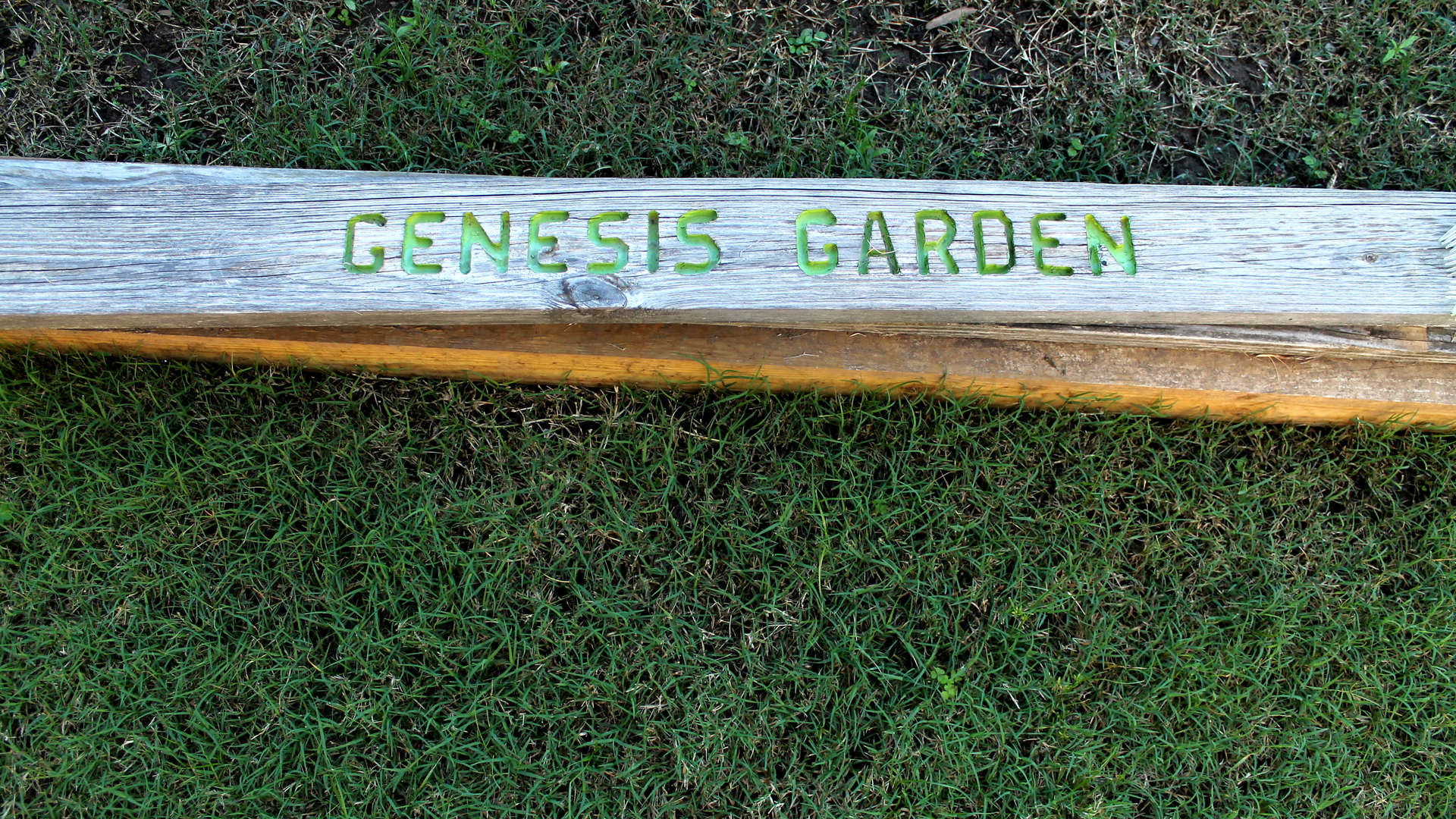
"We grew all our food from the earliest days I can remember," she said. "Dad did the gardening and Mom did the canning." Kitty doesn't grow her own food anymore; her yard doesn't get enough sun. Instead, her lifelong love for gardening blossoms out into the community, feeding the hungry through the Genesis Garden. The Genesis Garden was built in 2016 as an Eagle Scout project through Boy Scout Troop 400, which has met at Aldersgate UMC for decades. The garden fell out of use during COVID. But in 2022, Aldersgate folks Kitty Creery, Regina Whitaker, and Jane Bahor began working to revive the neglected space. Immediately, the garden was blessed with heavy harvests. "In those days Regina and I would walk down the aisles at church before worship started, giving away little bags of cherry tomatoes," Kitty said. In 2023, the harvest became so plentiful that finding a place to donate produce became a challenge. Thankfully, Kitty made a connection with the Durham Rescue Mission. To receive a large quantity of produce, a charitable organization needs adequate refrigerator space and preparation areas. The Durham Rescue Mission location on Alston & Main is equipped to receive the Genesis Garden's produce, which currently averages about 30 pounds per week during growing season. This location, which serves three meals a day to those in need, prepares and serves as much produce as the Genesis Garden can give, and more. The garden doesn't just feed the hungry; it also provides a point of connection between Aldersgate and surrounding neighborhoods. In fact, that's how Kitty and her late husband Pres got involved. As she and Pres took walks around the track during the COVID pandemic, they started to help clear the trail of unwanted overgrowth. Then they noticed the unused garden. Kitty's love of the soil took root, and the rest was history. During growing season—spring, summer and fall—the Genesis Garden is always in need of volunteers and donations. Planting, weeding, watering and delivering all keep the Durham Rescue Mission's refrigerators stocked with produce. In fact, the garden currently has multiple large pots of unused soil just waiting for more volunteers to dig in. Our 2025 yield could significantly increase if more volunteers lent a hand to keep it growing. If gardening feeds your soul, please reach out to us. Let's dig in to God's abundant creation and nourish those in need. If you'd like to help, contact the church office (information in the footer) or email Kitty directly at kwcreery at hotmail dot com.
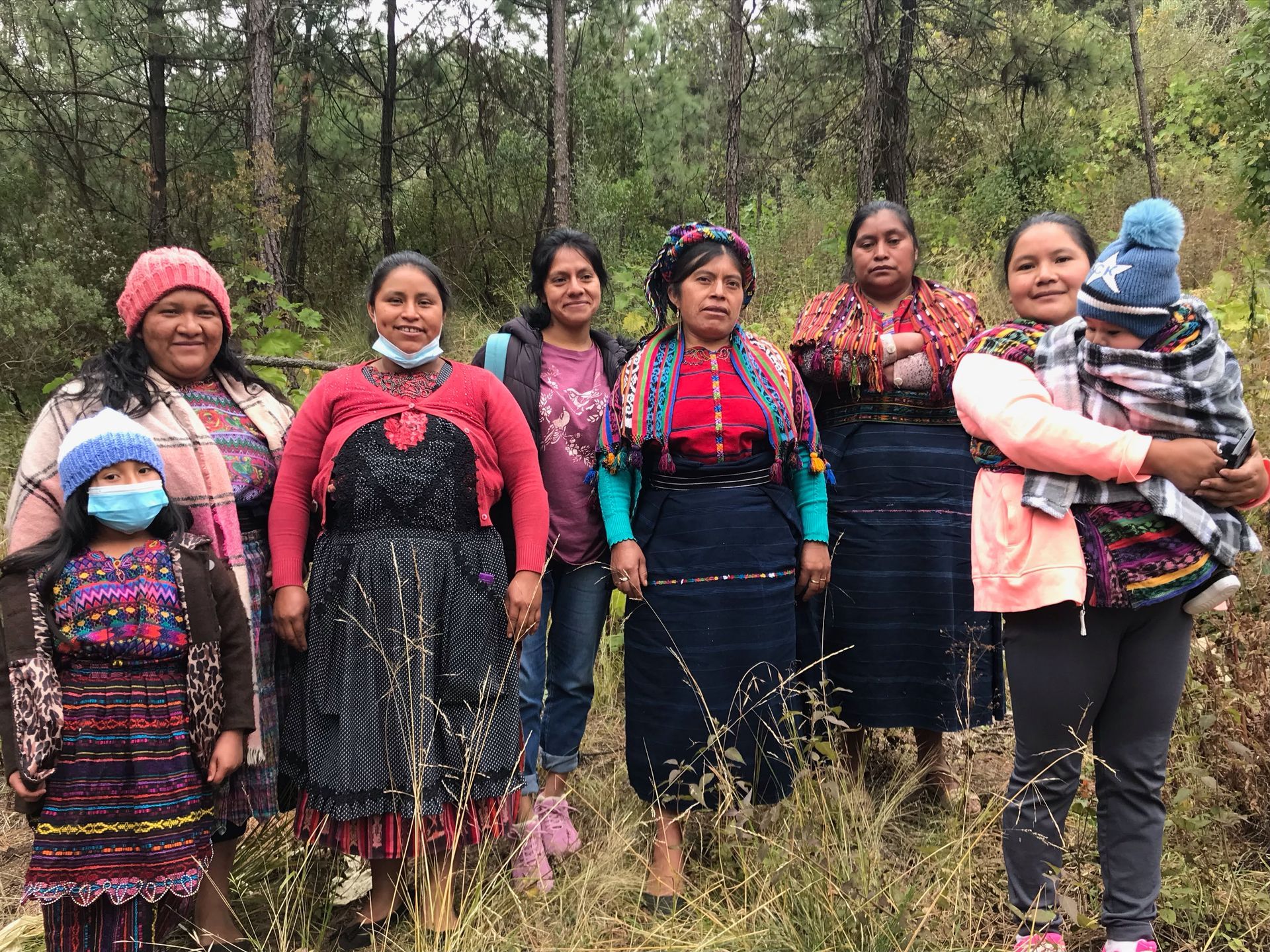
The Mam people have lived in western Guatemala for more than 2,500 years. Descended from ancient Mayan peoples, Mam Maya remain one of Guatemala's many Indigenous people groups. Since the Spanish Conquest, Mam Maya have endured a great number of political, social and economic pressures. Today, more than 600,000 Mam people continue to live in Guatemala's western highlands. Mam, their language, consists of 15 distinct dialects. Spanish is also spoken widely. Many of today's Mam Maya wear traditional clothing, woven and sewn within local communities. Vibrant colors, stripes and geometric patterns abound on long skirts, shawls, infant slings, and other traditional garments. Textile weaving and small-scale agriculture support many Mam communities, which tend to be tight-knit and family-focused. Multiple generations in a family often live in one home and eat together around wood stoves, frequently sharing simple meals of corn tortillas, vegetables, fruit, eggs, and chicken. Mam holidays, which include high points in the Christian year such as Holy Week and Christmas, often feature markets, parades, and marimba music along the streets. Catholic Masses, along with other Christian celebrations like baptism, also mark time among these communities; many of the Mam people are Catholic Christians. Poverty presents an ongoing challenge. Many Mam people work hard to produce food, clothing and supplies for their own family units and communities. Many nonprofits who serve them focus on providing income-generating resources (like chicken flocks and sewing machines) for families' long-term benefit. During Holy Week this year, Aldersgate UMC will lift up the Mam people to our community and request prayers and financial gifts. Stay tuned for more information coming on Palm Sunday. For now, please lift up the Mam Maya in your prayers, as we have done for more than 30 years.
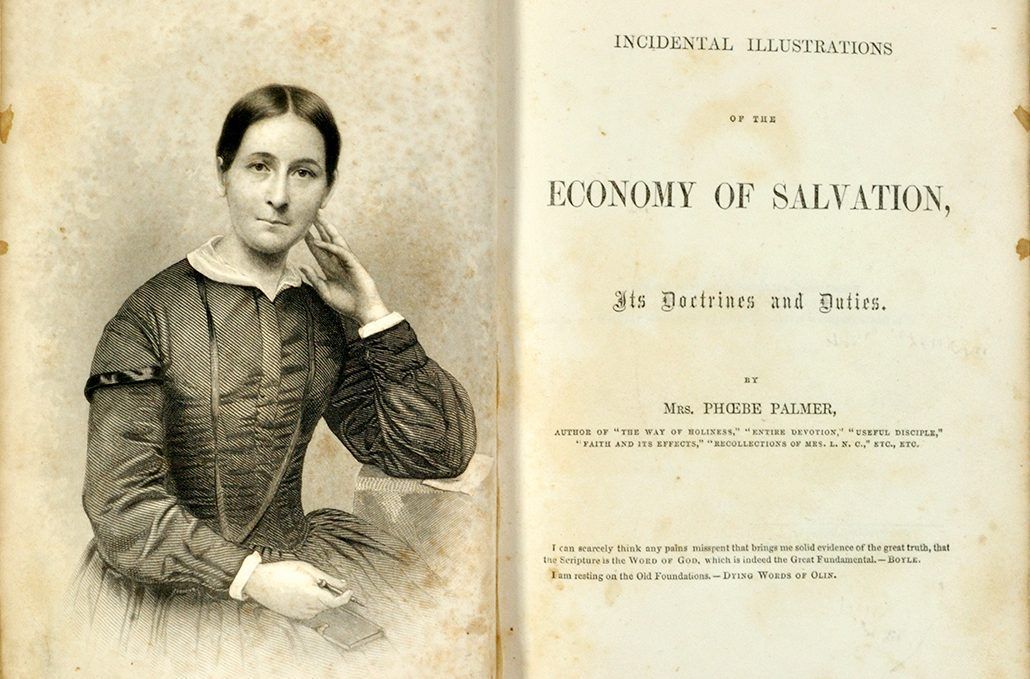
Phoebe Palmer (1807-1874) has been described as the most influential Methodist woman in the 19th century. She has also been called "Mother of the Holiness Movement." John Wesley incorporated holiness into Methodism after he saw it in the Moravians. Wesley believed that holiness, also called "entire sanctification" or "Christian perfection," could be attained in this life. "Christian perfection" means being perfect in love. Phoebe Palmer grew up in a Methodist home. As a teenager, she questioned her faith because even though she knew she was a Christian, she had never had an emotional conversion experience like other Methodists. In 1827 she married Walter Palmer, a homeopathic physician. In 1831 the Palmers moved in with Phoebe's older sister, Sarah Lankford, and her family. Here they learned of the Doctrine of Holiness, and Phoebe herself experienced entire sanctification in a dramatic moment of conversion on July 26, 1837. After this, Phoebe began home prayer meetings for women. These grew larger and were later called "Tuesday Meetings for the Promotion of Holiness." These meetings continued throughout her life. In the 1850s Phoebe and Walter went on mission trips in the eastern United States. They spoke at camp meetings and revivals. In 1867, The National Association for the Promotion of Holiness was created and became the basis for the Palmers' evangelical ministry. In the 1840s Phoebe also became involved in charitable works. She was active in the Ladies' Home Missionary Society and the founder of the Five Points Mission in New York City. Through these organizations she ministered to the poor, orphans, widows, prisoners and freed slaves. In addition to her evangelical and charitable work, Phoebe was a writer. She was editor of the periodical called "The Guide to Holiness." In 1854 she published a book titled The Way of Holiness , the first of six books she would write during her lifetime . Using scripture and logic in her book The Promise of the Father , she advocated for the right of women to speak as ministers. We praise God for the life and ministry of Phoebe Palmer. Image credit: https://worldmethodist.org/phoebe-palmer-and-the-day-of-days/
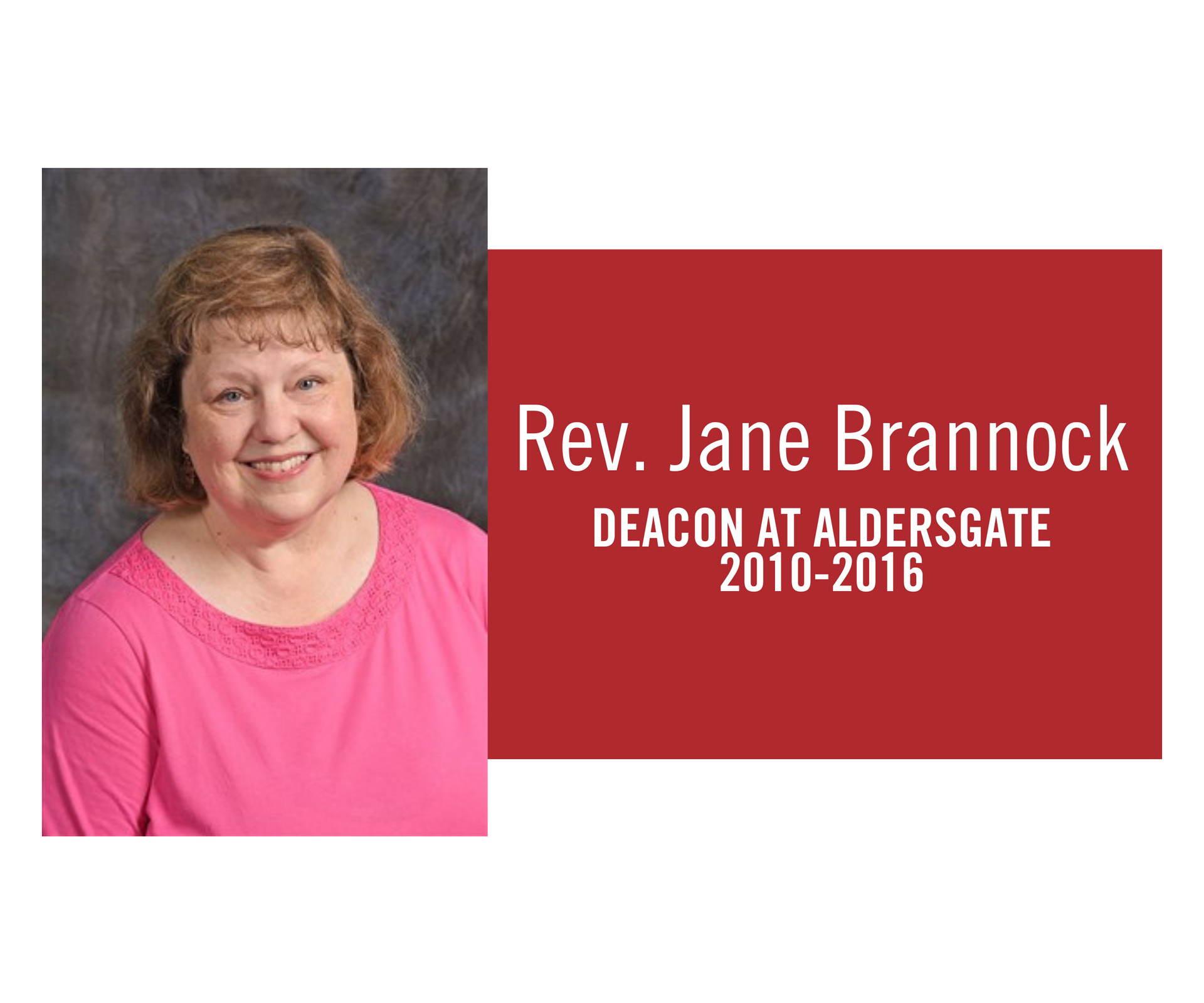
After graduating from college, Jane spent almost eight years working at Davis Library at UNC-Chapel Hill. For six of those years, she led the children's choir at her home church. But in 1990, God began to tug at her heart. "I started going on a quest...but I didn’t have the example of a Christian educator or woman minister," says Jane. Perceiving her calling, Jane's pastor encouraged her to visit Duke Divinity School, even offering to go along. She then connected with the late Margaret Ann Biddle, an accomplished Christian Education minister. That sealed the deal. In August 1991, she quit her job and began her Master of Religious Education at Duke. " It was my biggest leap of faith," she says. Thus began three fruitful decades of ministry. Jane was consecrated a Diaconal Minister in 1994 and ordained Deacon in 1997. She served churches in Goldsboro, Greensboro, Durham, Burlington and Elon. She taught, preached, led, and served. Her work ranged from teaching Vacation Bible School to helping guide a congregation through a complicated building transition & church merger. In 2024, 31 years after graduating from Duke Divinity School, Jane retired from professional ministry. "You really see the best of the church and the worst of the church," she says, "but I never once thought about leaving the UMC. It’s where I belong." Aldersgate was Jane's second-to-last appointment. She remembers us as "people who really have a heart for mission both globally and locally." She remembers a church with something going on every night of the week, a church with a hands-on commitment to service, a church with very active laity. Bustling Wednesday evenings and packed Sunday mornings feature most prominently in her memory. "It was a busy time," she says. "I found it very fun and fulfilling." During her six years here, Jane also observed that Aldersgate is a "neighborhood church." When I told her about our recent book study on The Art of Neighboring , she was not surprised that its message had resonated so well with Aldersgate's people, even today. "Aldersgate had more of a neighborhood feel than any of the other churches I was at," she said. Some things never change! Looking back on Jane's years of service reminds us what God has in store for those who follow his calling. Jane, like the first disciples (Matt. 4:18-22), "left [her] nets and followed Him." She took the leap of faith, and God brought us--and many other churches too--the fruits of her obedience. Are you feeling God tug at your heart? Do you think God is calling you to more? Perhaps Jane's mother's advice from 1991 will encourage you. " When I asked my mom what she thought, she said, 'I think you should have done it a long time ago.'”

John Wesley personally authorized Sarah Mallet to preach in 1787. Helenor M. Davisson became the first ordained Methodist woman in 1866. The Methodist Church granted full clergy rights to women in 1956, the same year Aldersgate UMC was founded in Durham. Like many others , these examples demonstrate Methodism's longstanding commitment to women in leadership. Today, the General Commission on the Status and Role of Women "advocates for full participation of women in the total life of The United Methodist Church." Our church has benefited from the ministry of five women clergy who served Aldersgate a total of 23 years. Since our founding in 1956, two women elders and two women deacons have been appointed to our congregation: Rev. Amanda Riley Smith, Associate Pastor, 2004-2006 Rev. Nanette de Andrade, Deacon, 2009-2018 Rev. Jane Brannock, Deacon, 2010-2016 Rev. Tara Culp Lain, Associate Pastor, 2011-2015 Next week's blog post will feature an interview with Rev. Jane Brannock, who served Aldersgate for six years. Until then, consider how God may be inviting you to participate in Methodism's long history of supporting women in ministry. Perhaps you can: Pray for all women in ministry Write an appreciation note to a woman ministry leader you know and ask how you can support her Learn more about Methodist women's history through the Commission's online resources If you are part of a woman's group, consider doing the UMC's six-session Women Called to Ministry study Let's give thanks together during this Women's History Month for the work God has done through women leaders here at Aldersgate and throughout Methodist history.

Your gift arrives Wednesday, the moment the ashes touch your forehead and Lent begins. Beneath the ashen wrapping, you'll find the gift: forty days of rest. Long ago, God commanded his people to "remember the Sabbath day and keep it holy" (Ex. 20:8). Holy things are set apart, cared for, tended to, honored. When is the last time you set apart time for your soul to rest? When did you last care for your own peace? Could your calendar use some tending? Have you honored your need for play? As we begin this Lenten season, let's sit with those questions. We will journey together through them as a community of disciples during the next 40 days. If you aren't sure where to start, keep reading for ideas on how to start receiving God's surprising gift of rest. Book Recommendations from our Adult Christian Formation Team Keeping the Sabbath Wholly: Ceasing, Resting, Embracing, Feasting by Marva J. Dawn This book invites the reader to experience the wholeness and joy of observing God’s order for life—a rhythm of working six days and setting apart one day for rest, worship, festivity, and relationships. Sabbath: Finding Rest, Renewal, and Delight in Our Busy Lives by Wayne Muller We need not even schedule an entire day each week. Sabbath time can be a Sabbath afternoon, a Sabbath hour, or a Sabbath walk. With wonderful stories, poems, and suggestions for practice, Muller teaches us how we can use this time of sacred rest to refresh our bodies and minds, restore our creativity, and regain our birthright of inner happiness. The Third Day: Living the Resurrection by Tom Berlin, Mark A. Miller Tom Berlin uses his gifts of storytelling and understanding of the Scriptures to connect the reader to the experiences of several individuals around Jesus in his final days, focusing on new life and redemption rather than loss. Beginner Sabbath Practices Not sure where to start? Try these tiny first steps. If you usually have radio/TV on in the background, turn it off for just 20 minutes. Go to your phone settings. Choose one app and turn off push notifications for that app. Set a timer for five minutes. Sit totally still and silent until the timer goes off. Print out this coloring page and listen to calming music or your audio Bible while coloring it in. Go to bed 15 minutes earlier than usual tonight. "A peace which the world cannot give; joy, that no man taketh from you; rest from doubt and fear and sorrow of heart; and love, the beginning of heaven. And are not these for you? Are they not all purchased for you by Him who loved you, and gave himself for you?" John Wesley
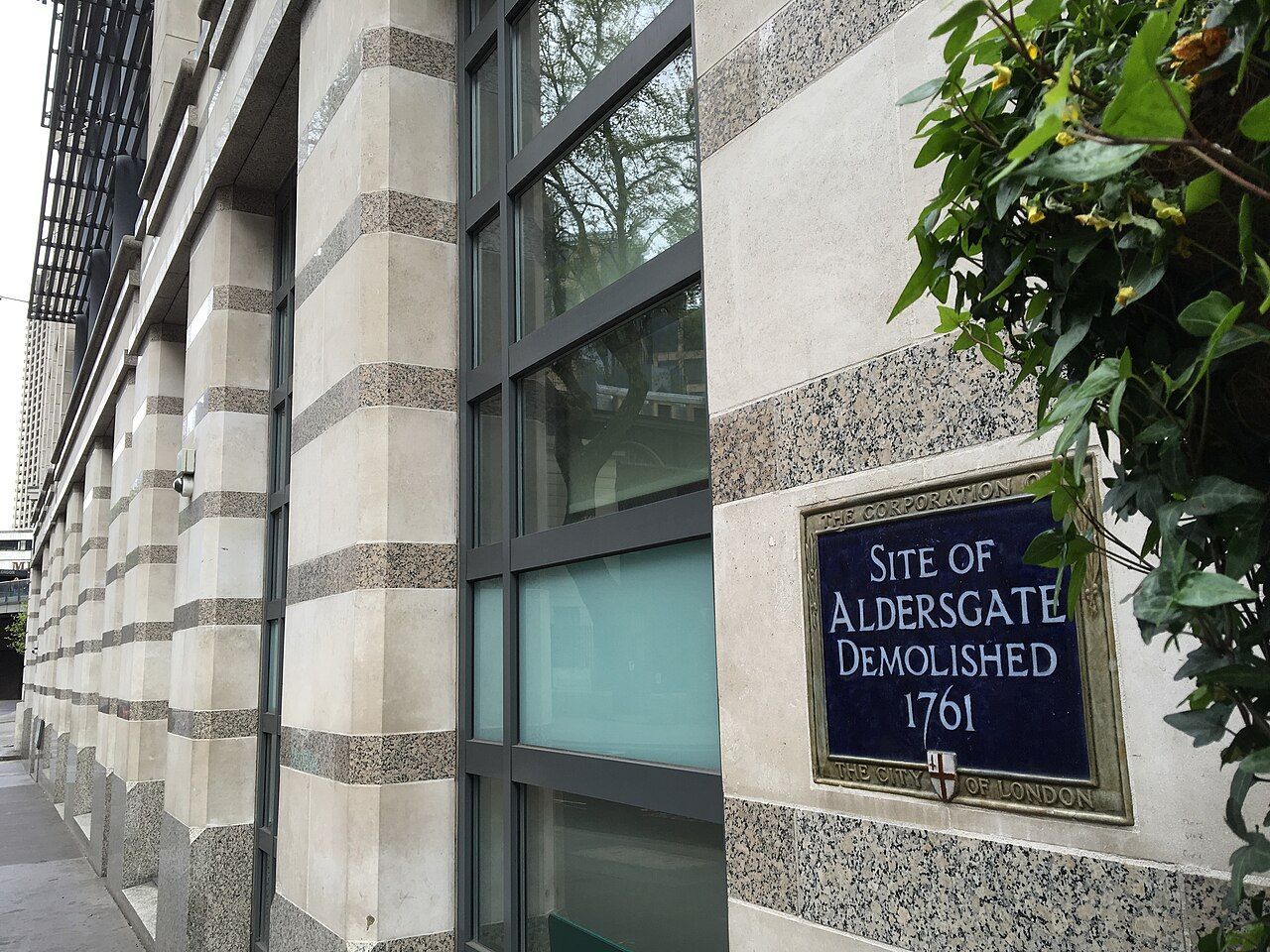
Aldersgate is a tiny neighborhood in London, England, named after one of the city's northern gates in the Middle Ages. Its name first appears in the year 1000 as Ealdredesgate . Like all London neighborhoods, today it elects an "Alderman" to represent its interests in city councils. So why is our Durham, North Carolina church named Aldersgate? On May 24, 1738, Anglican priest John Wesley visited a Moravian church on Aldersgate Street in London. There, he experienced the pivotal moment which birthed the entire Methodist movement. He wrote in his journal: "In the evening I went very unwillingly to a society in Aldersgate Street, where one was reading Luther’s preface to the Epistle to the Romans. About a quarter before nine, while he was describing the change which God works in the heart through faith in Christ, I felt my heart strangely warmed. I felt I did trust in Christ, Christ alone, for salvation; and an assurance was given me that He had taken away my sins, even mine, and saved me from the law of sin and death. I began to pray with all my might for those who had in a more especial manner despitefully used me and persecuted me. I then testified openly to all there what I now first felt in my heart.'" Wesley's experience of grace in a Moravian assembly on Aldersgate Street would one day change the face of global Christianity. 80 million people in 138 countries claimed membership in Wesleyan and Methodist traditions in 2018. The Moravian reading Romans aloud to John Wesley could hardly have known how many people would one day hear the echoes of his voice. So, in thanksgiving for that place, Methodists honor the name Aldersgate. In the United States alone, nearly 100 churches today bear this name, including ours. And this is our prayer: just as the little church on Aldersgate Street warmed John Wesley's heart, may we here at Aldersgate UMC offer warm welcome to all who cross our paths or step within our doors.
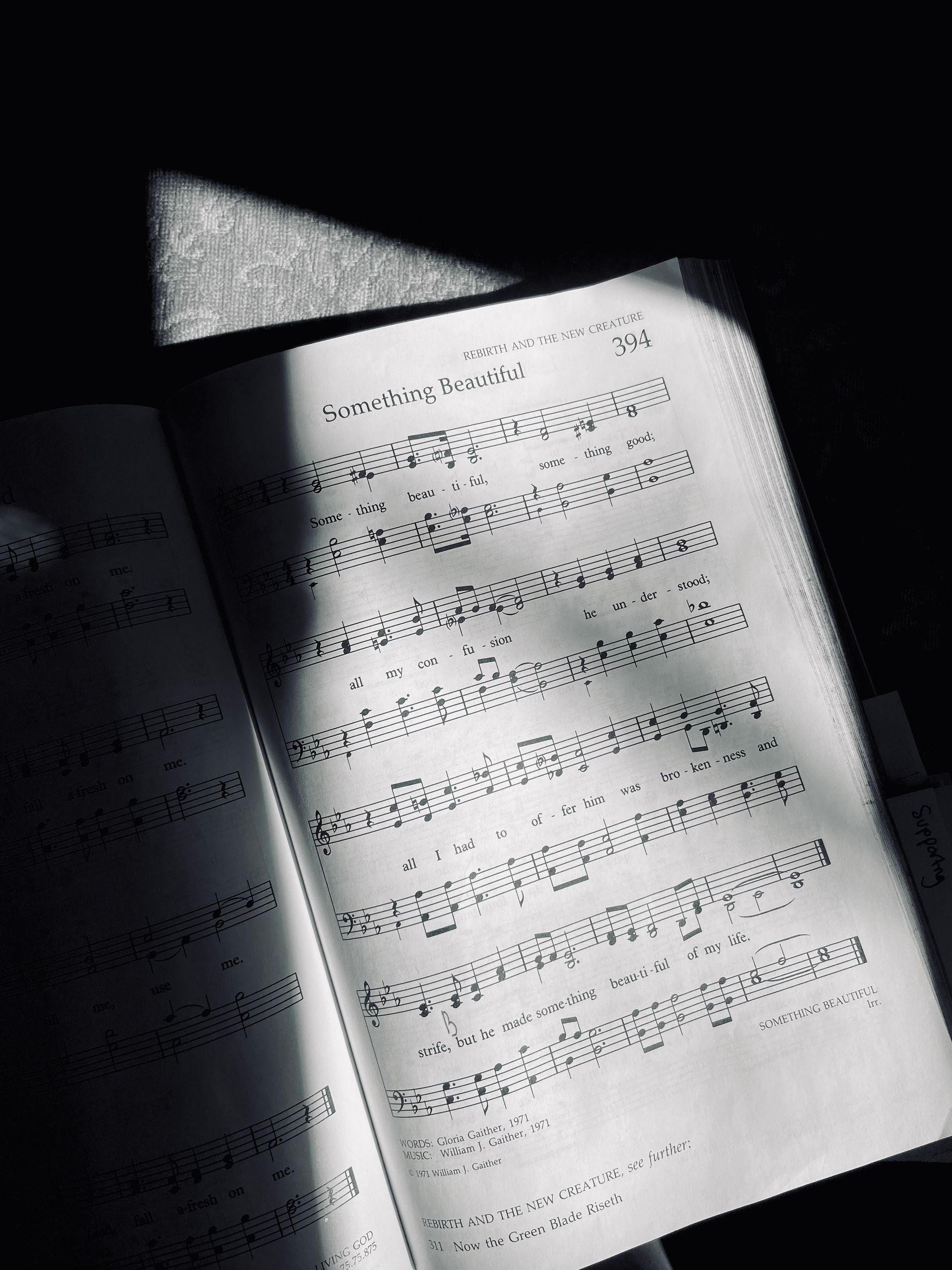
In 1971, Gloria Gaither wrote these moving words. Her heartfelt prayer of gratitude has touched millions of hearts and now features in the United Methodist Hymnal as Hymn #394. Something beautiful, something good; All my confusion he understood; all I had to offer him was brokenness and strife, but he made something beautiful of my life. How has God made something beautiful of our lives? What loveliness has God grown here at Aldersgate? During the coming year, our blog--titled "Something Beautiful"--will paint those pictures. God has turned our confusion, brokenness and strife into a blazing light of beauty that shines out into our dark world. Let's stand in awe of God's beautiful work, together. In the video below, watch the Gaithers bring an entire audience to tears with "Something Beautiful" in a performance from the 1990s.

